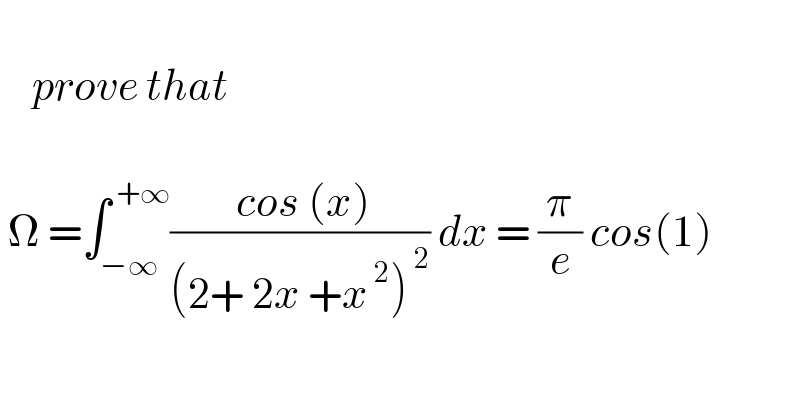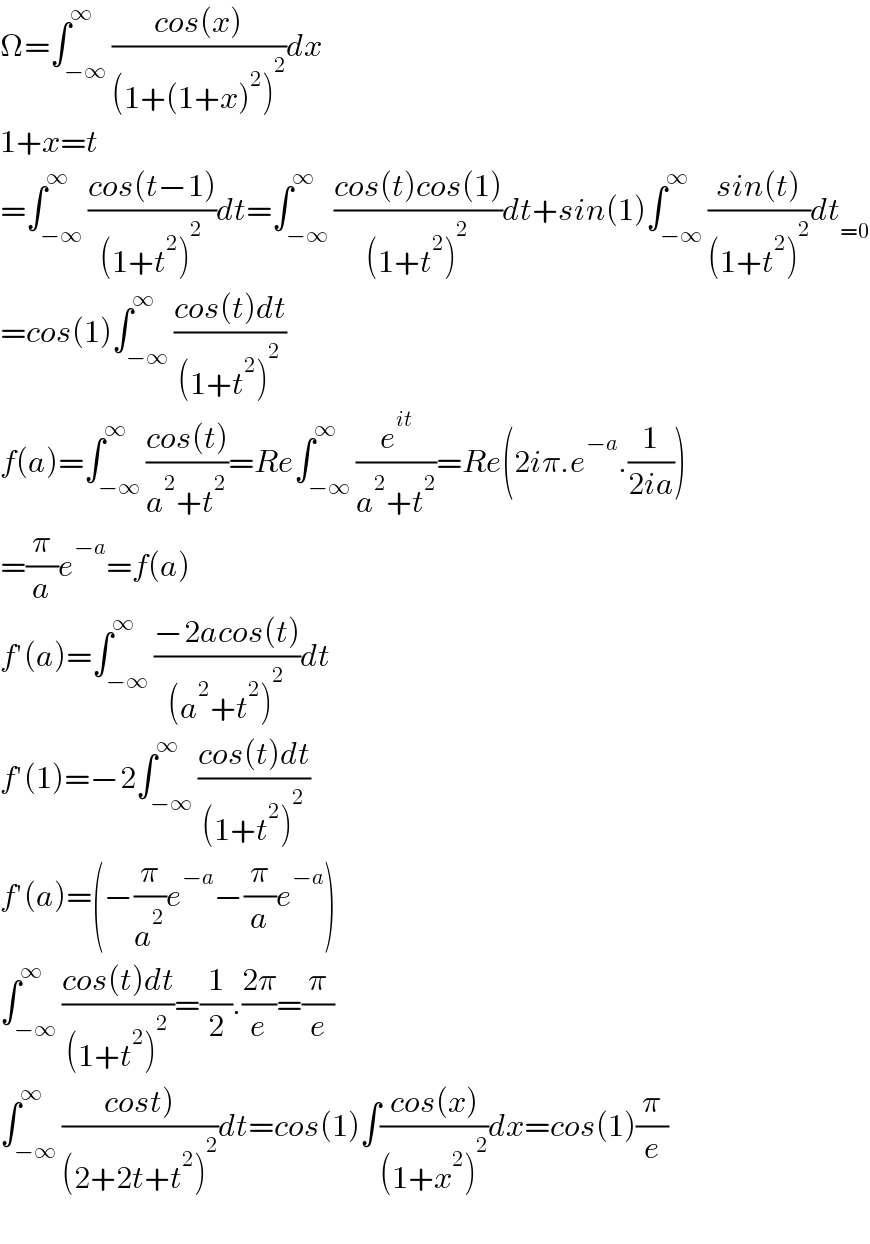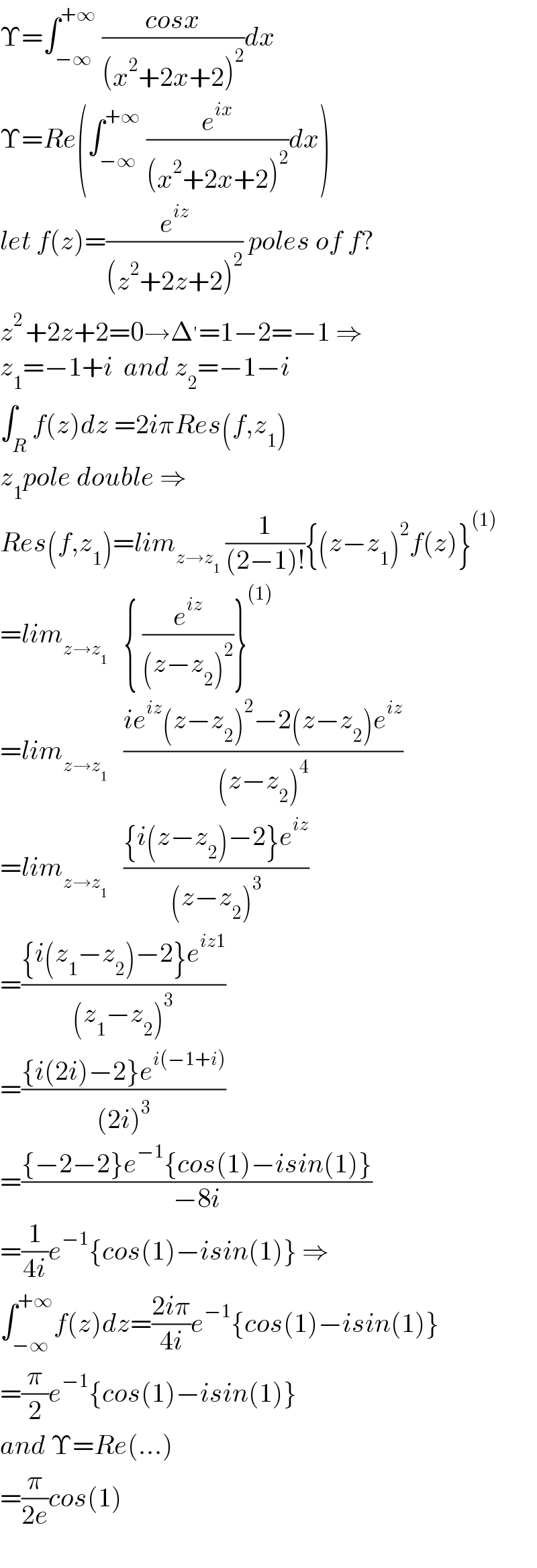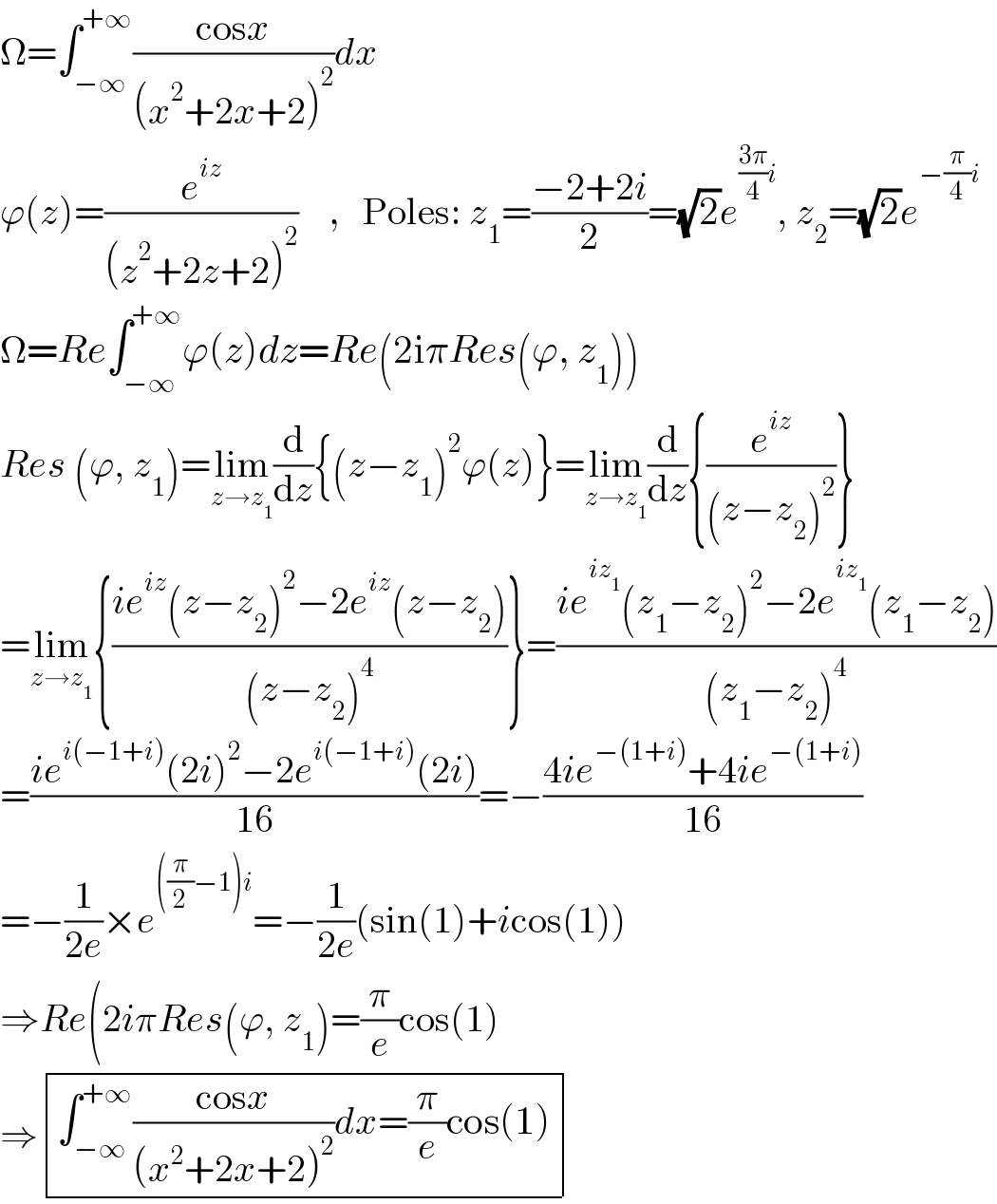
Question and Answers Forum
Question Number 162073 by mnjuly1970 last updated on 26/Dec/21

Answered by mindispower last updated on 26/Dec/21

Commented by Tawa11 last updated on 26/Dec/21

Commented by mnjuly1970 last updated on 26/Dec/21

Answered by Mathspace last updated on 26/Dec/21

Commented by mnjuly1970 last updated on 26/Dec/21

Answered by Ar Brandon last updated on 24/Mar/22

